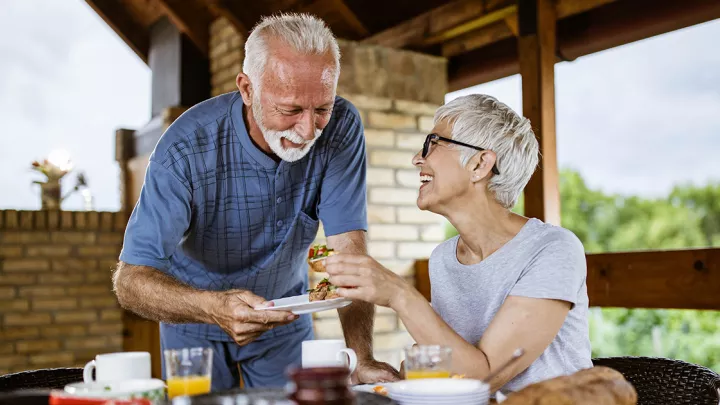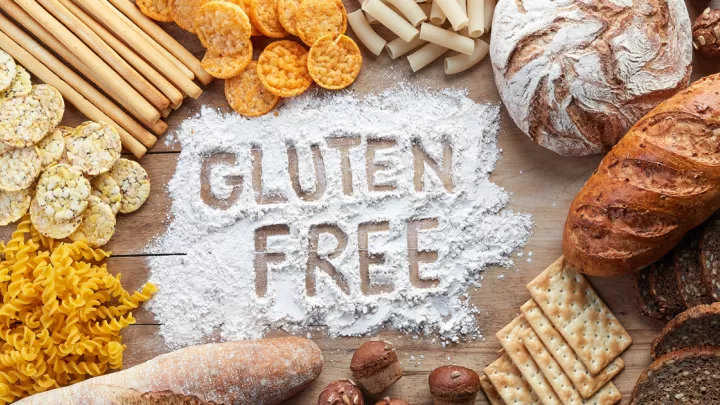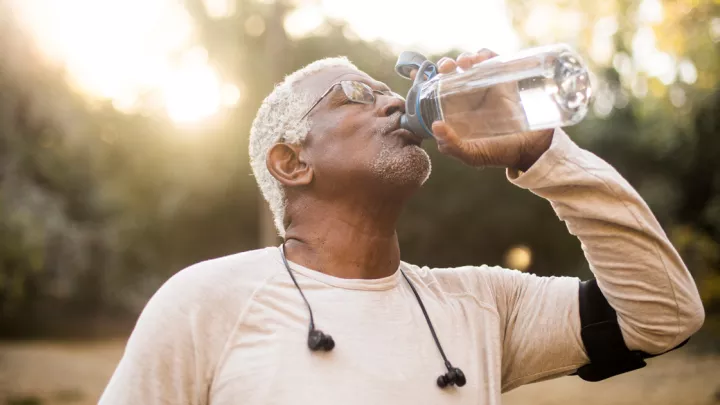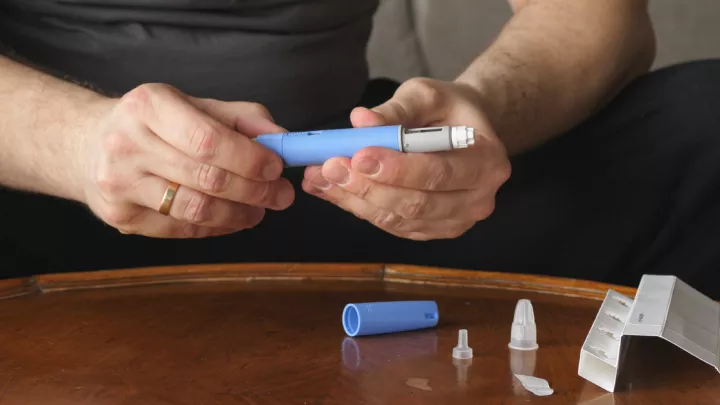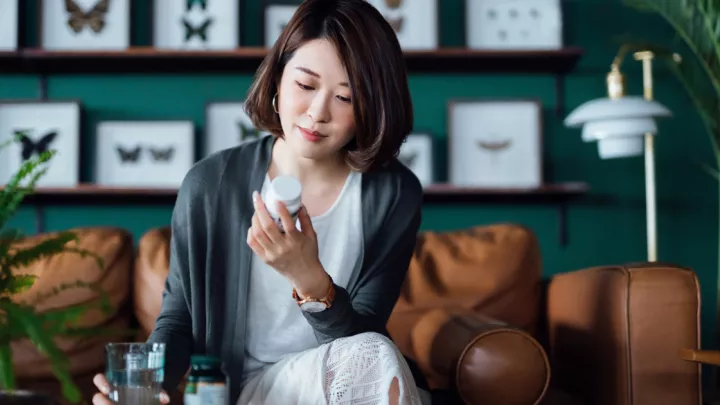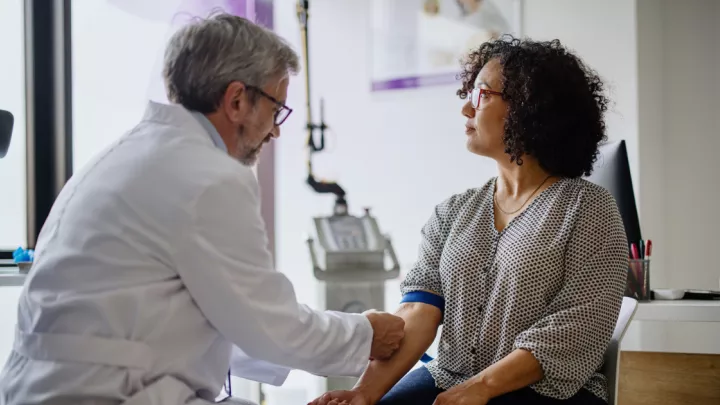You asked, we answered: What diet is suitable after radiation of prostate cancer?
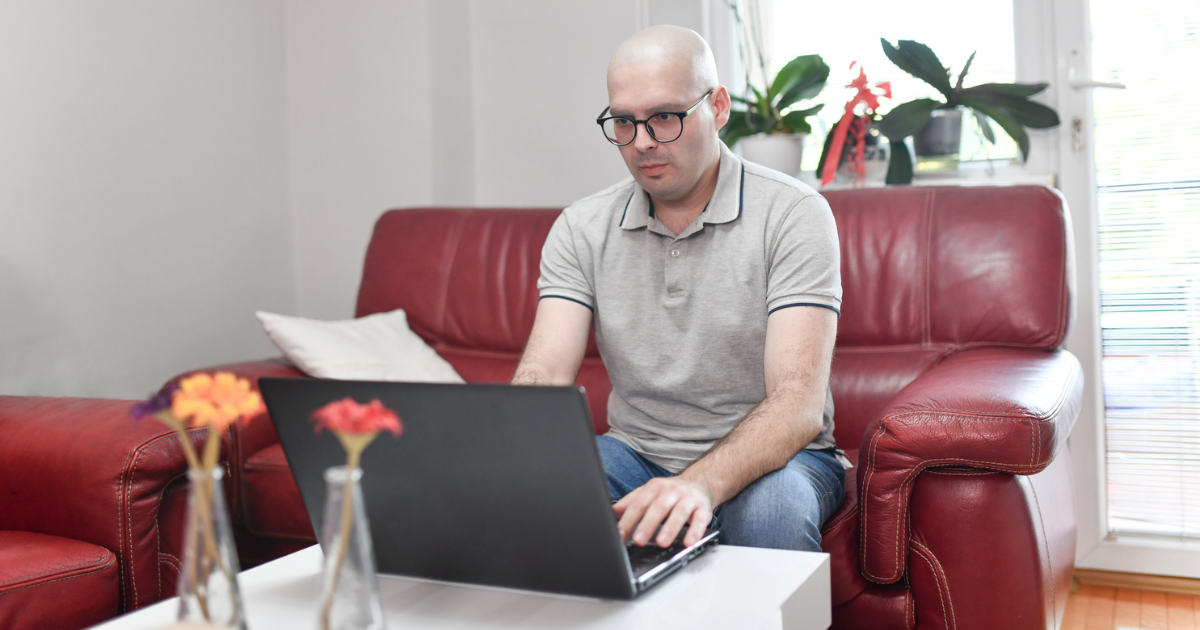
Undergoing cancer treatment can be a long and difficult journey that can affect every aspect of your body. Treatments such as chemotherapy and radiation therapy can cause a variety of side effects depending on the type of cancer being treated and your tolerance level.
“Maximizing your nutrition and choosing foods to minimize side effects can promote recovery and reduce downtime,” says Rebecca Beaudoin, RDN, LMNT, Nebraska Medicine nutrition therapist specializing in nutrition for cancer patients.
Side effects of radiation therapy that can affect your diet
Radiation therapy for prostate cancer can often cause gastrointestinal problems and other issues that affect your diet and appetite. These include:
- Diarrhea, which can strip your body of fluids and nutrients
- Fatigue, which can decrease your activity level and appetite.
“A healthy diet rich in protein, fruits, vegetables and whole grains is very important for healing and recovery, “says Beaudoin. “Eating a balanced diet can help you maintain weight, increase energy and muscle tone, reduce inflammation and preserve immune function.”
Foods to avoid during radiation therapy
However, if you are experiencing diarrhea and other gastrointestinal problems, you may need to adjust your diet temporarily to minimize these side effects. Foods you may need to eliminate during treatment include:
- High-fiber foods such as whole grains, nuts and seeds
- Fatty foods such as fried foods, fast food and highly processed foods like donuts and pastries
- High-fat dairy products like ice cream, whole milk, cream, butter and salad dressings
- Spicy foods
- High-sugar foods
- High-fat processed meats like sausage, salami, bacon and hot dogs
- Caffeinated drinks
Dietary changes to help manage side effects
Other dietary changes you can make to manage side effects include:
- Eat smaller, more frequent meals
- Drink plenty of water
- If experiencing diarrhea, increase fluids and sports drinks to replenish electrolytes
- For nausea, try ginger, such as ginger tea or ginger chews
Multivitamins
While it’s OK to take multivitamins, do not rely on them to get your nutrients unless recommended by your doctors, says Beaudoin. “It’s much better to get your vitamins from the foods you eat,” she explains. “There are so many components you get from food sources that you can’t get from a multivitamin, such as fiber, complex carbohydrates and phytonutrients. These all work together to give your body the essential nutrients it needs.
Remember, these food changes are usually temporary. “We work with each person individually to help with side effects of treatment, Beaudoin explains. “After treatment, we can start adding foods back into your diet one at a time to get you back to a normal, healthy diet again.”
Learn more about nutrition services for cancer survivors.


